

2025 Federal Priorities
Dear Business Community,
The Salt Lake Chamber is committed to advocating for policies that strengthen Utah’s economy and promote prosperity for our businesses and communities. Utah employers, large and small, deserve an environment that enables them to thrive, supported by the tools and resources they need. To that end, the Salt Lake Chamber works closely with policymakers to advance solutions that strengthen our workforce, modernize infrastructure and bolster competitiveness.
Throughout the year, we connect with Utah’s Congressional Delegation to identify the priorities most critical to sustaining our state’s economic momentum. Because Utah’s success is intertwined with federal policy and the strength of the national economy, our advocacy ensures that businesses and communities continue to prosper.
This year, the Salt Lake Chamber’s federal priorities reflect forward-looking solutions to the challenges facing Utah’s businesses and communities. We are focused on advancing balanced energy policies that leverage the state’s leadership in both traditional and emerging technologies; applying science-based natural resource management to protect our water and forests; and investing in strategic infrastructure that gives states the flexibility needed for effective implementation. We are also prioritizing workforce development to meet critical labor needs, promoting fair trade policies, ensuring balanced regulation and supporting continued investment in the defense sector. These priorities equip states to lead with confidence while securing lasting prosperity for our communities.
We extend our gratitude to Utah’s Congressional Delegation for their service and leadership. We also urge all members of the Salt Lake Chamber to stay informed and actively participate in these advocacy efforts. By working together, we can ensure that Utah remains a place of opportunity, innovation and resilience – setting a standard for the nation and building a future of lasting prosperity.
Sincerely,


Derek Miller President and CEO Salt Lake Chamber
Jeremy Hafen
About the Salt Lake Chamber
The Salt Lake Chamber serves as Utah’s premier business leader by supporting statewide prosperity. Established in 1887, the Chamber is Utah’s largest and longest-serving business association and exists to keep Utah prosperous through economic and civic progress. We promote a positive economic climate through member services and business advocacy.
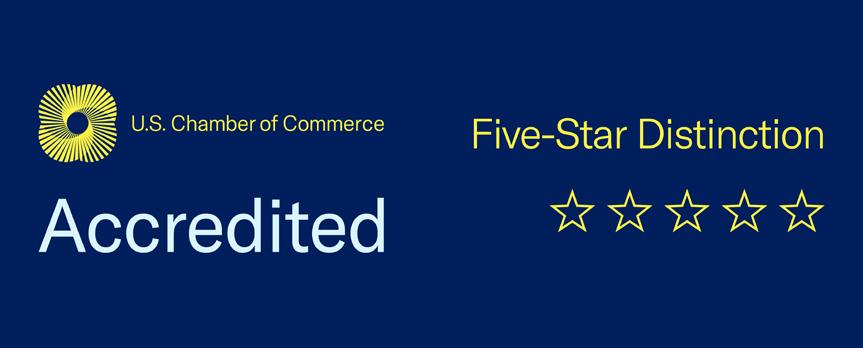
The Salt Lake Chamber has been recognized by the United States Chamber of Commerce with a 5-Star Accreditation for its sound policies, effective organizational procedures and positive impact on the community.

Congressional Delegation
Senate

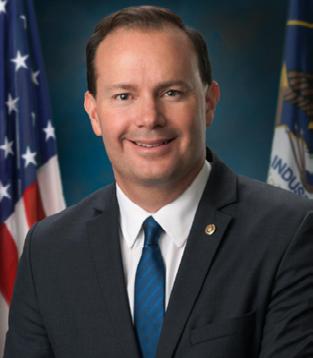
House

Sen. John Curtis
Congressional Committee Assignments:
Committee on Foreign Relations
Committee on Commerce, Science and Transportation
Committee on Environment and Public Works
Committee on Small Business and Entrepreneurship
Sen. Mike Lee
Congressional Committee Assignments:
Committee on Energy and Natural Resources - Chair
Foreign Relations Committee
Committee on the Judiciary
Committee on the Budget
Rep. Mike Kennedy
Congressional Committee Assignments:
Committee on Natural Resources
◊ Federal Lands
◊ Indian and Insular Affairs
Committee on Science, Space and Technology
◊ Research and Technology
◊ Space and Aeronautics
Committee on Transportation and Infrastructure
◊ Economic Development, Public Buildings and Emergency Management
◊ Highways and Transit
◊ Railroads, Pipelines and Hazardous Materials

Rep. Celeste Maloy
Congressional Committee Assignments:
House Committee on Appropriations
◊ Subcommittee on Interior, Environment and Related Agencies - Vice Chair
◊ Subcommittee on Energy and Water Development and Related Agencies
◊ Subcommittee on Legislative Branch
House Committee on Natural Resources
◊ Subcommittee on Federal Lands
◊ Subcommittee on Water, Wildlife and Fisheries
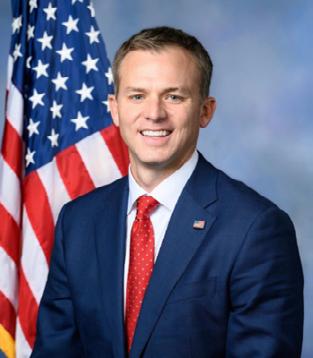
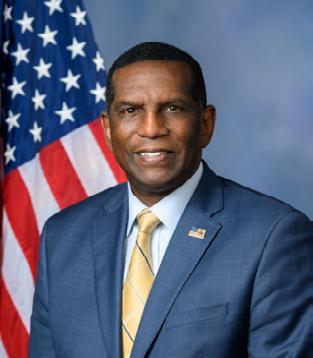
Rep. Blake Moore
Congressional Committee Assignments:
House Republican Conference - Vice Chair
House Committee on Ways and Means
◊ Subcommittee on Health
◊ Subcommittee on Social Security
◊ Subcommittee on Trade
House Committee on the Budget
Rep. Burgess Owens
Congressional Committee Assignments:
Committee on Education and the Workforce
◊ Early Childhood, Elementary and Secondary Education
◊ Higher Education and Workforce DevelopmentChair
Committee on Transportation and Infrastructure
◊ Aviation
◊ Highways and Transit
◊ Water Resources and Environment
Federal Priorities Energy
The Salt Lake Chamber supports a balanced, forward-looking energy strategy that keeps Utah’s economy competitive and resilient. Affordable, reliable and sustainable energy, paired with responsible resource development, is foundational to our state’s economic growth and national security. These priorities advance Utah’s leadership in nuclear innovation and responsible permitting — helping businesses power their operations, create jobs and meet future demands. Leveraging these emerging technologies alongside traditional energy sources such as coal, oil and natural gas will help secure Utah’s longterm energy future.
We Urge Congress to
Incentivize an “all-of-the-above” energy approach to drive economic growth, ensure energy independence and strengthen national security.
Reduce regulatory and licensing barriers to streamline permitting for geothermal and nuclear energy projects, ensuring these technologies are treated equitably alongside other forms of energy development.
Respect the principle of federalism that allows Utah to lead in energy innovation, including public-private partnerships and research initiatives, by reducing one-size-fits-all federal mandates.
Renew programs such as the Grid Resilience and Innovation Partnerships (GRIP)set to expire at the end of FY26 which have a direct benefit to Utah and its electric grid.

Infrastructure & Federal Lands
Strong infrastructure drives Utah’s economic competitiveness and quality of life. The Salt Lake Chamber advocates for federal investments and policies that help communities build and maintain modern roads, water systems and broadband. These priorities strengthen local economies, connect communities and keep Utah moving forward with streamlined processes and smart financing tools, while ensuring that growth is balanced with the protection of our state’s unique landscapes, natural resources and outdoor heritage.
We Urge Congress to
Target Congressionally Directed Spending (earmarks) requests toward priority transportation, broadband and water projects that benefit Utah in FY26 appropriations.
Support efforts to maximize the impact of federal infrastructure investments by examining opportunities to provide block grant funds to Utah Department of Transportation (UDOT) with reduced regulatory burdens and greater flexibility in their use.
Support states’ authority to prioritize and lead infrastructure projects by ensuring they have the flexibility and resources needed to implement initiatives efficiently and without delay.
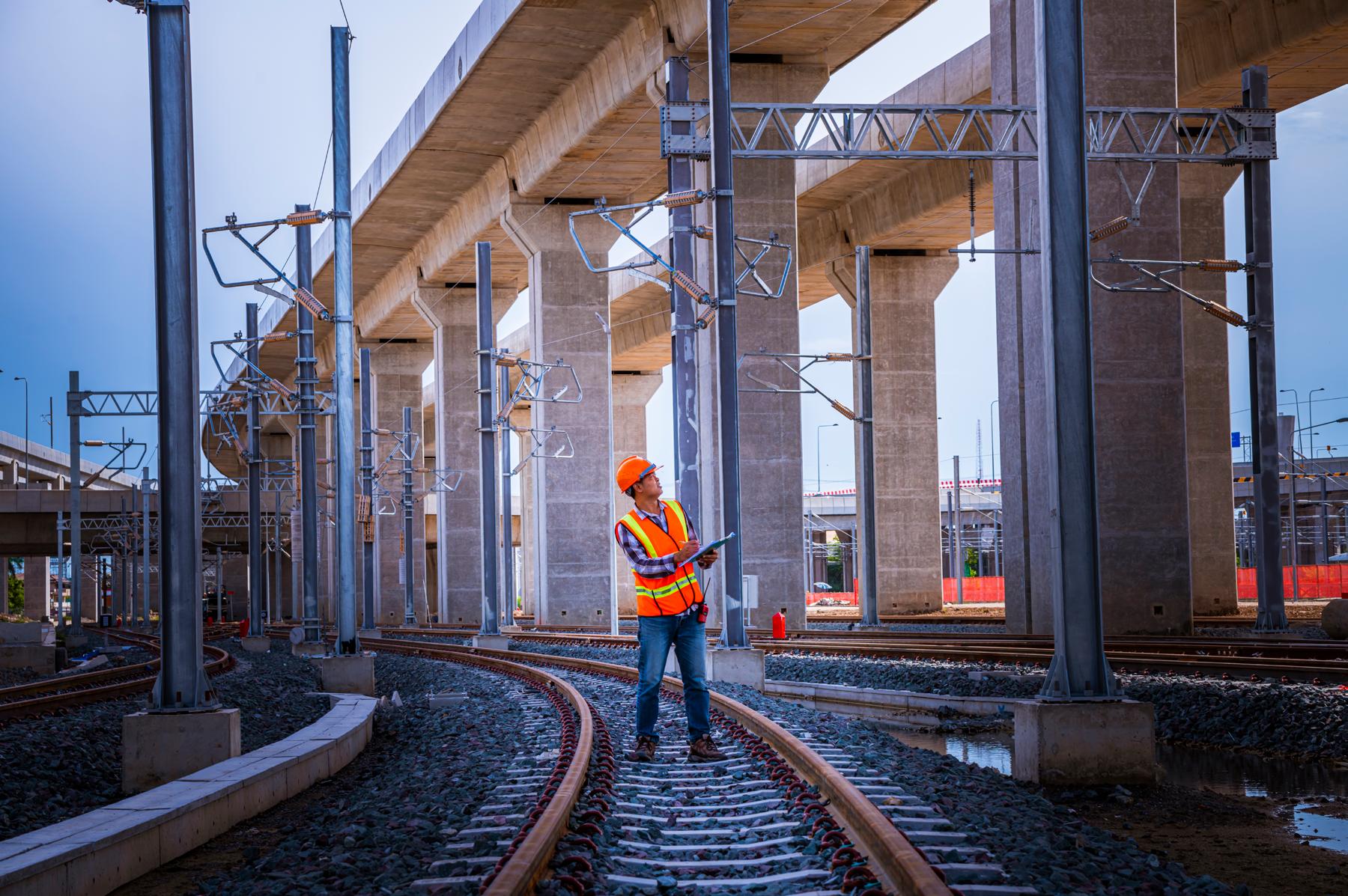
National Security Natural Resources
A strong national defense supports not only global stability but also regional economic strength and innovation. Utah plays a vital role in America’s national security landscape, with key military installations, defense contractors and research institutions contributing to readiness, cybersecurity, aerospace and critical mineral development. The Salt Lake Chamber supports continued investment in defense infrastructure, supply chain resilience and advanced technologies as essential to maintaining strategic advantage and supporting thousands of Utah jobs.
We Urge Congress to
Ensure the National Defense Authorization Act (NDAA) and defense budget fully fund Utah’s military installations, defense contractors and innovation sectors as critical components of national security and economic growth.
Support Utah’s SJR 11 (Joint Resolution Regarding Critical Minerals) by enacting federal legislation to consolidate the Department of Energy and Department of the Interior’s critical minerals lists, ensuring copper is included as a critical mineral. Allocate defense funding to expand domestic processing infrastructure and strengthen supply chain security.
Strengthen protections against foreign and domestic theft of Utah businesses’ intellectual property and sensitive research.
Ensuring the long-term reliability of Utah’s natural resources is essential to supporting our industries, communities and environment. The Salt Lake Chamber supports policies that promote science-based water management, encourage innovation in resource efficiency and invest in forest health and wildfire prevention.
We Urge Congress to
Direct the Bureau of Reclamation and Department of the Interior, through legislation or appropriations, to modernize Colorado River water allocations based on current science and existing state agreements.
Increase funding to the Bureau of Reclamation and the U.S. Department of Agriculture (USDA) for water efficiency technology grants targeted at western states, supporting agriculture as a key driver of Utah’s rural economy.
Fully fund forest treatment and wildfire management to reduce the risk of catastrophic wildfires, protect Utah’s watersheds and safeguard communities, infrastructure and tourism assets. Proactive investments in forest health not only preserve critical natural resources but also lower long-term suppression costs and support rural economies dependent on healthy landscapes.
Elevate the Great Salt Lake as a national environmental, economic and public health issue by securing federal funding for watershed restoration and air quality monitoring and mitigation. These efforts will protect vital wildlife habitats and safeguard the economic stability of industries tied to the lake including mineral production, agriculture and outdoor recreation.
Regulation
Balanced, predictable regulation and respect for state authority are essential to Utah’s economic growth and competitiveness. The Salt Lake Chamber supports commonsense reforms that reduce unnecessary red tape, ensure federal agencies remain accountable to Congress and preserve Utah’s flexibility to lead on emerging issues like AI and smart infrastructure. These priorities help businesses plan with confidence, protect state decision-making and ensure taxpayer dollars are used efficiently.
We Urge Congress to
Pass legislation establishing statutory deadlines — two years or less — for National Environmental Policy Act (NEPA) reviews of large-scale energy, transportation and critical mineral projects, while limiting duplicative federal permitting requirements to improve efficiency and transparency.
Enact the Regulations from the Executive in Need of Scrutiny Act (REINS) to require congressional approval for major federal rules with economic impacts over $100 million, ensuring regulatory certainty for businesses.
Build upon Utah’s proactive approach to regulating emerging technologies and AI by ensuring federal policy complements state-led efforts and provides a clear, comprehensive framework that balances innovation, accountability and local needs.

Trade & Tariffs
A stable, fair and predictable trade and tax environment is critical for Utah businesses to compete and grow in a global economy. The Salt Lake Chamber supports policies that expand international market access, strengthen key trading relationships and protect local businesses from unfair trade practices. These priorities help Utah exporters thrive, ensure financial certainty, enable business investment and promote a level playing field for domestic industries.
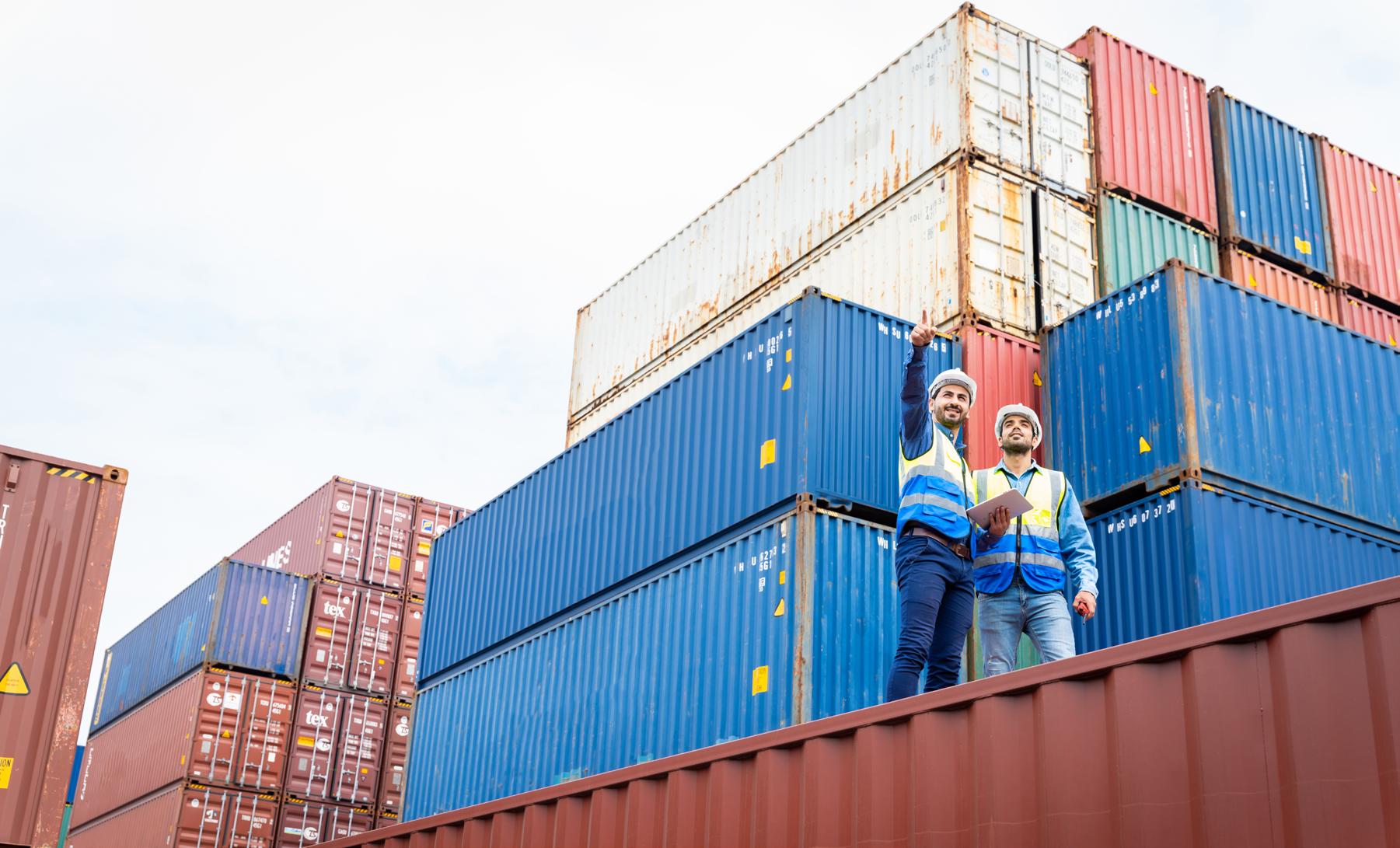
We Urge Congress to
Ensure appropriate congressional oversight of significant tariff changes to protect businesses from sudden disruptions and to maintain fair, transparent trade policy.
Build on Congress’s recent action eliminating the de minimis exception by advancing additional reforms to remove non-tariff trade barriers, ensuring small and local Utah businesses can compete fairly with foreign imports.
Support the development of fair and strategic trade agreements with the United States’ largest trading partners including Mexico, Canada, Taiwan and the United Kingdom, to strengthen our economy and advance national interests.
◊ Prioritize Utah’s interests in upcoming United States-Mexico-Canada Agreement (USMCA) negotiations by protecting market access for agriculture, strengthening provisions for aerospace and advanced manufacturing and ensuring critical minerals are included in trade frameworks that secure supply chain resilience and U.S. competitiveness.
◊ Reauthorize the Generalized System of Preferences (GSP) to restore duty-free treatment for eligible imports, lowering costs for Utah businesses, supporting job creation and strengthening supply chains.
Workforce
A strong, resilient workforce is the foundation of Utah’s economic success and future growth. The Salt Lake Chamber champions policies that help employers attract and support talent, close critical labor gaps and create an environment where both employers and employees can succeed. Expanding workforce infrastructure such as affordable housing, attainable education and child care addresses Utah’s urgent workforce needs and strengthens the state’s position as one of the best places to live and do business.


We Urge Congress to
Following the passage of the Affordable Housing Credit Improvement Act (AHCIA) we urge similar support for the Affordable Housing Bonds Enhancement Act (AHBEA) to boost tax credits for affordable housing projects in Utah.
Support and fund grants including Child Care Access Means Parents In School (CCAMPIS) to supplement child care programming on higher education campuses.
Following the enactment of Workforce Pell Grants, which expand access to short-term workforce education programs, we urge continued support for initiatives that make education more affordable, expand the workforce pipeline and prepare more individuals for in-demand careers.
Support the agricultural industry by expanding access to year-round H-2A visas for dairy farmers and other year-round producers, and by reducing burdensome requirements — such as repeatedly proving the lack of a domestic workforce — to allow employers to rehire the same seasonal workers annually. In addition, expand the availability of H-2B visas to meet workforce needs in industries such as hospitality, tourism, landscaping and construction, which face persistent seasonal labor shortages.



